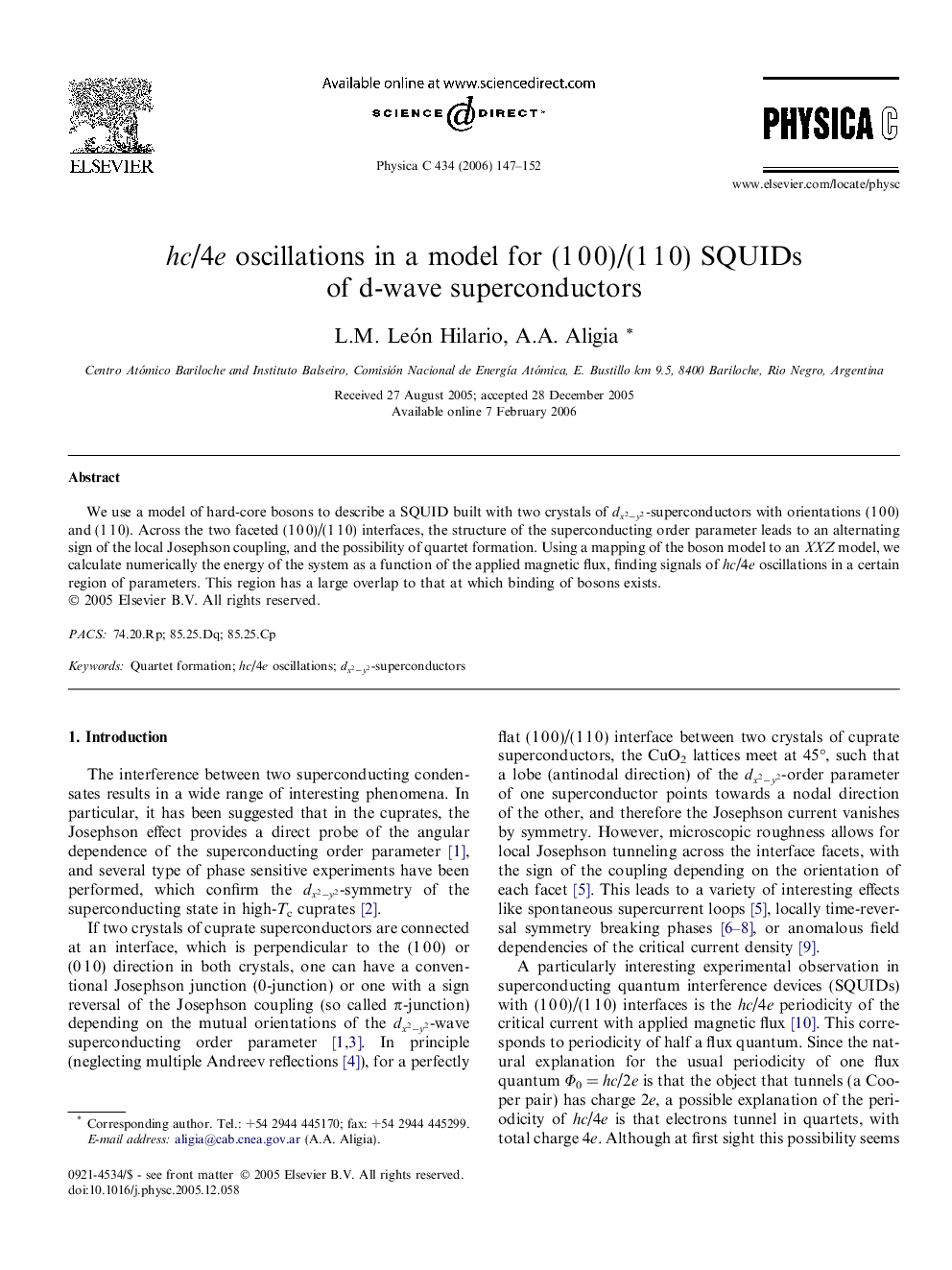| Article ID | Journal | Published Year | Pages | File Type |
|---|---|---|---|---|
| 1820781 | Physica C: Superconductivity and its Applications | 2006 | 6 Pages |
Abstract
We use a model of hard-core bosons to describe a SQUID built with two crystals of dx2-y2-superconductors with orientations (1Â 0Â 0) and (1Â 1Â 0). Across the two faceted (1Â 0Â 0)/(1Â 1Â 0) interfaces, the structure of the superconducting order parameter leads to an alternating sign of the local Josephson coupling, and the possibility of quartet formation. Using a mapping of the boson model to an XXZ model, we calculate numerically the energy of the system as a function of the applied magnetic flux, finding signals of hc/4e oscillations in a certain region of parameters. This region has a large overlap to that at which binding of bosons exists.
Related Topics
Physical Sciences and Engineering
Physics and Astronomy
Condensed Matter Physics
Authors
L.M. León Hilario, A.A. Aligia,
